 By:
Justin Time
By:
Justin Time
There are many controversies surrounding the use of weed. One of those is based on the fact that weed is a drug that causes addiction. Many folks use it to get stimulated to respond to pleasures such as sex, food, and entertainment. Medical experts warn that the plant alters the mind making the user hyperactive, elusive, and addicted. This can lead the mind to commit crimes like murder and irresponsible behavior. Besides that, it’s harmful to the body.
When weed is consumed, the main ingredient THC (Tetrahydrocannabinol) spreads in the bloodstream within seconds. This brings about a high feeling to the user, and it may take up to four hours to wear off. The thinking and reasoning get distorted by heightening the senses resulting in impaired judgment. Medics have warned that marijuana use also heightens or decreases anxiety, and causes memory loss, bronchitis, red eyes, weakened immune system, and increased pulse rate. Another adverse effect is the inability to make a proper judgment.
Despite this negativity, cannabis is known for its medicinal value. Sometimes conventional medicines fail to relieve patients’ chronic pain due to diseases like cancer and severe injury. Cannabis extracts have been shown to aid in reducing extreme pain. The active compound, THC, is an ingredient for a legal medication known as Marinol, which is used to treat and control nausea and vomiting in cancer chemotherapy patients. It is usually an alternative when other drugs fail to control vomiting. The same is used to control weight loss in HIV patients by improving their appetites.
Weed is a science beyond controversy, pushing several states, on the crossroad as to whether they want to legalize its production and consumption. Organizations in many countries are coming out publicly to support Marijuana law reforms. For example, DPA (Drug Policy Alliance) advocates for removing marijuana from the criminal justice structures. The organization believes that the state and federal levels should legalize weed to protect patients’ rights to access medicine efficiently.
DPA says that the use of weed alleviates pain and suffering without causing debilitating side effects and contraindications. Diseases such as cancer, glaucoma, and AIDs inflict the body with severe pain, which can be relieved using extracts from this magic plant. In the United States, advanced research is going on to unravel the plant’s medicinal value.
That is not all. Countries such as Uruguay, Netherlands, Israel, Canada, The Czech Republic, and Spain are now leading cannabis researchers in the world. It’s no doubt that marijuana is going to become the world’s most sought-after herb. The dark cloud of controversy surrounding the production and consumption of weed is becoming clearer, especially because its support is becoming a global affair.
As countries worldwide drag their feet on the legalization of cannabis, some have not hesitated to take the bold step. Quite some countries have legalized cannabis production and use. In 2013, Uruguay was the world’s marijuana legalization pioneer. Since the passing of the law, the Uruguay government has supported businesses to grow marijuana for medicinal use. Businesses are thriving because of higher profit margins and more export potential.
Locally, the drug is used as a pharmaceutical ingredient in medicines that relieve chronic pain, nausea, and vomiting, among other conditions. The country has put strict structures to control cannabis. Locals can buy snacks and smoking papers; however, they must prove they are registered to buy. Each licensed pharmacy has a thump print reader to scrutinize the buyers. Queues are often witnessed outside drug stores, an indication that supply and demand are not proportional. The demand for weed exceeds supply.
The international market demand is above supply prompting the country to encourage businesses to venture into large-scale farming of the crop and exploit the ready global market.
Uruguay’s challenge is that even if the country is sovereign, it is still affected by the United States’ strict finance laws on restricted substances. Lenders who rely on United States partnerships to do international transactions are under threat. U.S. banks do not want to do business with countries involved in cannabis money.
The U.S. federal law under the Controlled Substances Act (CSA) of 1970 regulates the use and possession of marijuana. The Act prohibits it regardless of its purpose. On the other hand, the state has legalized cannabis use both for medicinal. Many states are now allowing weed use for recreational purposes. Several states have gone ahead to vote for marijuana.
Some of the states where marijuana is legal in the U.S for use, on both medical and recreation are:
The following states restrict the use of marijuana for medical use:
Outside the U.S, the Federal District of Columbia has legalized the commercial sale of cannabis and carrying up to 2 ounces. Inhabited territories such as Guam Northern Mariana Islands have completely legalized weed use.
It is illegal to be found in possession of marijuana in the following states. Besides, marijuana possession may attract up to 5 years in prison:
The Democratic-led House plans to vote for the federal government of the U.S to legalize the use of marijuana without decriminalization. Once the MORE Act is implemented, the product will be removed from the list of controlled substances in the United States. However, it will depend on the Republicans, who are now the majority, to decide to pass the bill or not.
In American Samoa, it is illegal to possess the drug, and it attracts a 5 years mandatory sentence.
Canada is also in the list of states where marijuana is legal. Its Cannabis Act is the law behind the control of production and consumption of marijuana. The law was passed in 2018, making it legal to possess and use Marijuana. The federal government is in charge of licensing growers. The producers determine how its distribution and sale without any restriction. The only threat is that the federal government will sign off if it is heavily advertised.
Jamaica, the world’s marijuana icon, legalized marijuana recently in 2015, becoming one of the states where marijuana is legal. Contrary to people’s perception that the product was legal, the existing law before 2015 decriminalized possession and use of marijuana for personal use. It was only allowed for medicinal purposes. Peter Tosh, a famous reggae star, pleaded with the government to fully legalize marijuana. After 40 years, his wish was fulfilled when the state amended the existing law to legalize marijuana fully. Jamaicans celebrated the new law, which treats possession of 56.6 grams of marijuana as a petty offence that does not attract any criminal record.
Rastafarian adults are permitted to use the drug for religious purposes making Jamaica set the world record as the only country that has legalized marijuana f religion. Citizens can cultivate up to five plants per household for recreational use.
The’re legal dispensaries dispensing marijuana to sick travelers and those who have a valid doctors’ prescription. The country’s Cannabis licensing authority intends to transform the marijuana black market into a legal industry to promote trade. This will help the marginalized community to increase their earning potential and minimize drug-related crimes.
In Africa, the trend is not different. There are several states where marijuana is legal. Lesotho, a Southern African state, became the first country in Africa to amend its laws to favor marijuana. The country’s ministry of health authorized a private country to manufacture and sell marijuana in the form of medicinal and therapeutic products.
The company has also been licensed to grow and produce the crop commercially. Lesotho produces high quality and low-cost marijuana due to its favorable climatic conditions. The labor force is also skilled and knowledgeable in the field. The end product is consumed locally and regionally, but plans are in place to explore the global market.
South Africa, the southernmost country in Africa, relaxed its laws on weed production and consumption in 2019. It is now official that the use of weed, popularly known as Dagga, by the locals is not a crime punishable by law. Locals can use it as they wish. After many years of demonstrations by the South Africans to relax the cannabis production and consumption law, their demands were met.
Malawi has not been left behind. It is one of the latest countries to accept and legalize the production and consumption of weed. It intends to exploit the international market whose estimated value stands at a cool $150 billion. Projections by Barclays Bank reveal that by 2028, the market could hit a staggering $272 billion. Malawi’s Minister for Agriculture says that the crop makes the country realize fast economic growth and diversification by boosting its exports.
Being a third-world country with more imports than exports, it’s also facing the burden of huge external debts to fund the already limping economy.
Once Malawi delves into the global market, the GDP will grow immensely. The legislative frameworks for the regulation of cannabis production and use are already in place. Any individual with the capacity to produce and process the crop can be licensed.
Zambia has a similar story. Weed use and sale are legal and can be exported. Economists say that the country could be headed for an economic crisis due to the huge international funding from countries like China and Japan. At the end of 2018, the debt burden had shot to a shocking $8.75 billion. If handled well, the countries revenue may shoot to an annual turnover of $38 billion. Issuance of licenses to grow, produce, and sell marijuana done by the country’s Ministry of Health Department is set to increase revenue to the country and revive the economy. Guidelines to regulate the crop are underway.
More and more counties are gaining momentum to legalize weed. In the Asian continent, Thailand is promoting medicinal marijuana. It has legalized its production and consumption to boost its tourism industry.
The country is aware that most high spenders are tourists, who are critical in boosting the economy. The public demand is met by producing cannabis for medicinal through pharmaceutical products and goodies like chocolate wafers (YUM), oral sprays, tablets, THC and CBD oils. However, it is an offence to be found in possession of weed for recreational purposes.
Other countries in the race to make marijuana legal are South Korea, Malaysia, and the Philippines. All these have laid down frameworks and guidelines and may soon join the list of states where weed is legal. It is a fact that many countries are now embracing the growth and consumption of weed.
The global black market, which is worth trillions of dollars, is a thriller and a threat to the legal market. As long as governments prohibit the production and sale of marijuana, the black market will continue to thrive. That is why the race to make it legal is still on and will change and transform global markets. The states will be enriched economically by promoting cannabis production and consumption of marijuana.
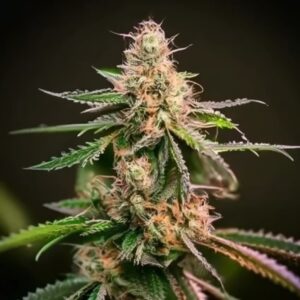


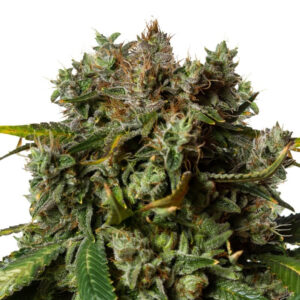

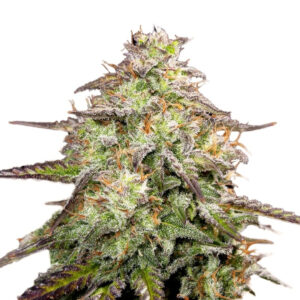
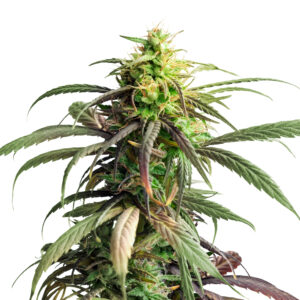






Related Posts

Margo and Sjef, a congenial couple from Bertogne, Belgium, have been happily married for over 40 years. Their life has been a vibrant tableau, an epitome of a love that has grown and adapted through the decades. With two daughters who have families of their own, Margo and Sjef have been able to enjoy the joys of grandparenthood while still maintaining…

There is pretty much a strain for everything now and I think that it is pretty fantastic how cannabis has been developed so much that we can now pick and choose how we want to feel and then select a strain from there. Different people have different uses for cannabis, some like it to make them sleepy, others use it to stimulate their appetite, some even use it to enhance their concentration. However, if all you’re looking for is to feel good and maybe a little bit giggly, then this is the article for you. Here are a few of my favorite strains for inducing euphoria:
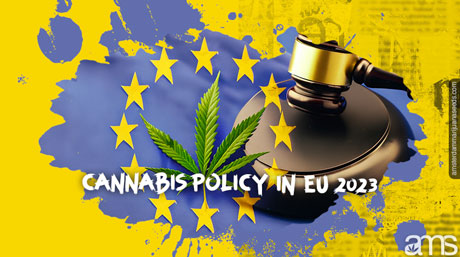
Introduction:
Cannabis has been a source of public health and policy debate for decades within the European Union (EU). As the most popular illegal drug in the region, it is essential to understand the current policies and trends affecting cannabis use and regulation within the EU. This article aims to provide an informative overview of the cannabis policy in the…